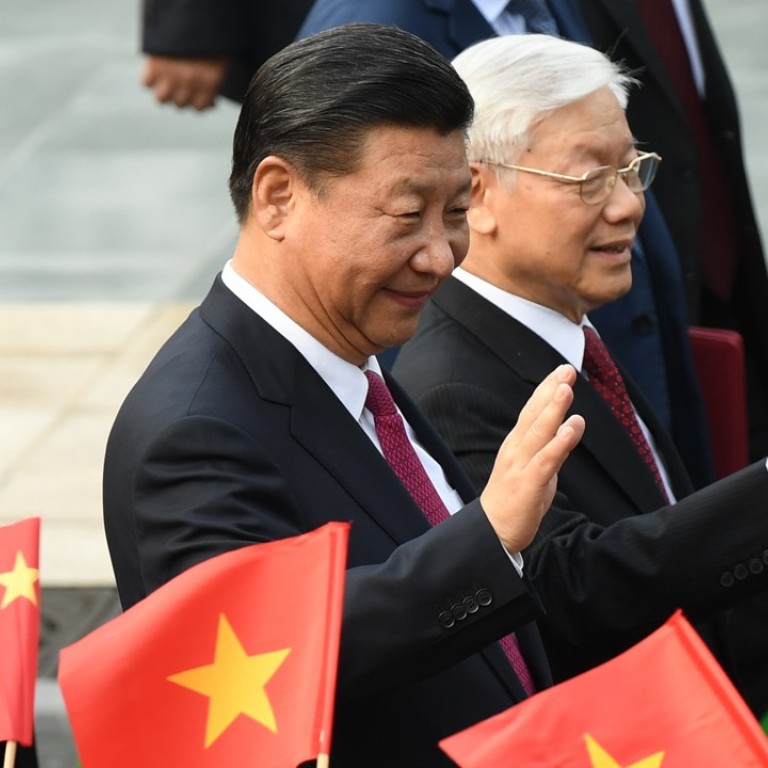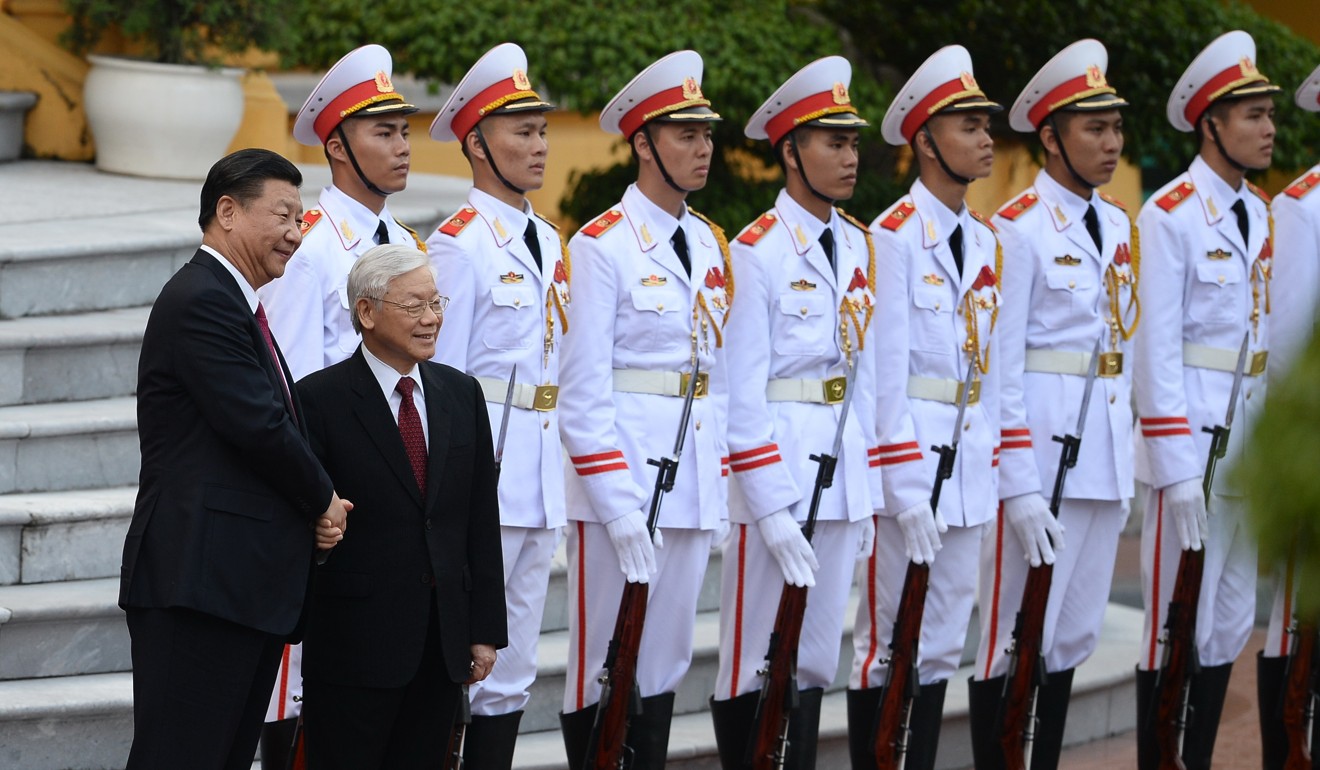
Vietnam rolls out red carpet for Xi Jinping as Hanoi and Beijing try to patch up South China Sea row
Chinese leader’s state visit comes as both sides try to resolve differences over contested waterway
Vietnam gave Chinese President Xi Jinping the red carpet treatment on Sunday at the start of a state visit, as the two communist neighbours try to broaden their economic ties and resolve territorial disputes in the South China Sea.
Xi and Nguyen Phu Trong, general secretary of the Vietnamese Communist Party, reviewed an honour guard and headed for talks behind closed doors. It was Xi’s first overseas trip since consolidating his power at the Communist Party’s national congress last month.
Xi and US President Donald Trump, among others, just finished an Asia-Pacific economic summit in the Vietnamese coastal city of Da Nang.
Vietnamese President Tran Dai Quang said his country wanted to end disputes in the South China Sea through peaceful means.
“It’s our policy to settle disputes in the East Sea through peaceful negotiations and with respect for diplomatic and legal process in accordance with international law, including the United Nations Convention on the Law of the Sea,” he said, referring to the South China Sea.

Quang made the comments on Sunday during a joint news conference with Trump. In a meeting with Quang earlier in the day, Trump offered to serve as a mediator on the South China Sea disputes.
Vietnam and China, along with four other governments, claim all or parts of the South China Sea, which is believed to sit atop rich natural resources and occupies one of the world’s busiest sea lanes.
China in recent years has built artificial islands and increased its militarisation in the waters, drawing criticism from Washington, which argues that the United States has a national interest in freedom of navigation in sea lanes critical for world trade.
Vietnam has become the most vocal opponent of China’s moves after Philippine President Rodrigo Duterte softened his country’s stance on China.
Tran Viet Thai, from the Diplomatic Academy of Vietnam, said Xi’s visit was important to build mutual trust.
“The visit marks a new step forward in Vietnam-China relations,” he said. “Hopefully the relations will continue to stabilise, because the two sides currently share great interests in broadening their cooperation and maintaining stability.”
Bilateral relations plunged to their lowest level in years in 2014 when China parked a giant oil rig in an area claimed by Vietnam. The incident sparked deadly anti-China protests for several weeks.
Tensions between the two communist neighbours have flared again in recent months over the disputed waters. In July, Vietnam had to suspend an oil and gas exploration project conducted by Spain’s Repsol company, under apparent pressure from China. In September, Vietnam protested against live-fire drills by China near the Paracel Islands.

